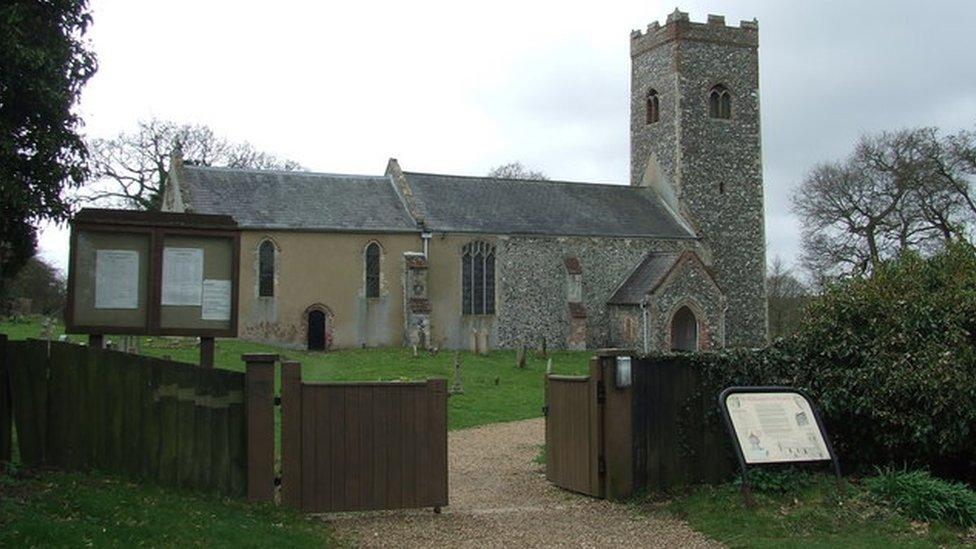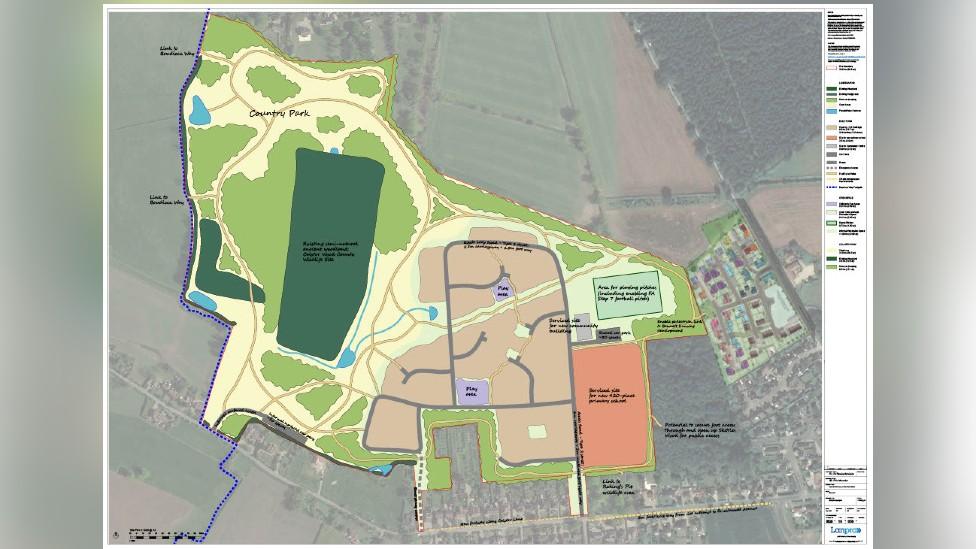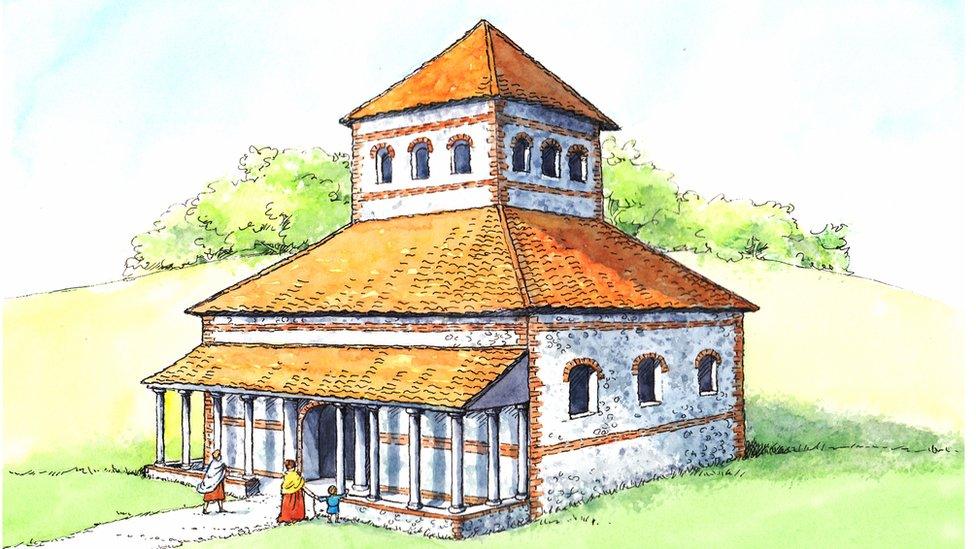Caistor St Edmund: Plans for country park on Roman settlement site
- Published

The plans would almost double the size of the village of Caistor St Edmund in Norfolk
A country park could be built on the site of a Roman settlement as part of plans to almost double the size of a village.
About 91 acres of Caistor St Edmund in Norfolk could be developed to provide 180 homes according to plans submitted to South Norfolk Council.
Proposals also include a primary school, village hall and play facilities with a football pitch.
Natural England and Historic England expressed concerns about the plans.
Caistor Country Park would be 60.5 acres and run alongside the Boudicca Way footpath, the Local Democracy Reporting Service said.
Caistor contains the remains of the Roman market town of Venta Icenorum, although the proposed development is at the opposite end of the village, on land north of Caistor Lane close to Framingham Earl and Arminghall.

The plans have been submitted as a "screening option", where developers send them to the council for review before submitting a planning application
James Albone, from Historic England, said there was potential for buried archaeological remains to be present within the proposed site and requested that a detailed historic assessment be carried out.
Joe Thorpe, from Natural England, advised that the development was likely to have a significant effect on nature conservation sites and further assessment was required.
Lanpro, which submitted the "screening option" plans on behalf of Glavenhill Ltd, said the country park would be a "realistic alternative to visiting the Broads".
A Lanpro representative said the infrastructure would be delivered "without cost to the public purse" and rather through selling the homes.
The developers said they hoped to submit a planning application early in the new year.

Find BBC News: East of England on Facebook, external, Instagram, external and Twitter, external. If you have a story suggestion email eastofenglandnews@bbc.co.uk, external
Related topics
- Published13 September 2020
